Design & Build quality
With the double massive wooden plates and the top quality leather in between, the Nirvana has the same look and feel as the HA2-SE and Headonia headphone amplifiers and basically all of the other Auris Audio units. I really love the designs the Auris CEO comes up with, but I’ve seen pictures of upcoming units and their design is completely different. Like the beautiful Headonia and HA2-SE, this is not only is an amplifier, it’s a piece of art and I am using it in my main living room setup where it’s visible for everyone to see. A beautiful and well sounding amp of this kind deserves the center piece spot, it’s that simple. Personally I prefer the black version over the white one, but my wife doesn’t agree.
The wood, leather, buttons, switches, connectors and VU-meters: everything is beautiful and perfectly integrated. There are no crooked lines, no glue, no loose leather, moving switches or whatever: the build quality is perfect. I don’t have a list of components used on the inside of the amplifier, but I’m sure they’re top quality brands again. The Nirvana weighs a hefty 19kg and both the power supply as well as the amp section are built like a tank. You’ll immediately experience that when you’re unboxing it (don’t forget to use the gloves).
The Power supply and amp section of course share the same dimension in width and depth and their base both is about 10cm, not counting upper amp part.
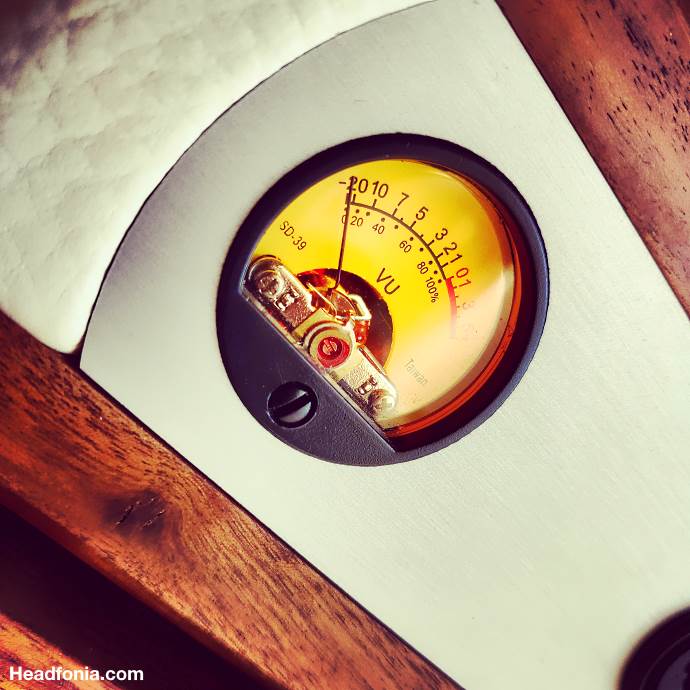
The nice thing also is that it doesn’t matter to Auris of you’re buying an entry level unit or the reference level one: it has to be perfect both in looks and build. The Nirvana comes in a really big double box (power supply) and it’s extremely well protected so the shipping doesn’t damage the units. Unboxing it took quite some time because of the careful and precise packing but I gladly spend time on this.
Amp layout
Lay-out wise the amplifier – just like before – is very simple, but that’s exactly what makes it so beautiful. A thick wooden plate on top and at the bottom, with in between the gorgeous leather finish. The Nirvana amp and power supply just look great together when stacked on top of each other but if you want the most optimal cooling down air flow, it is best to place both units next to each other. You can still stack the units but you just have to make sure there’s enough aeration in the room you’re using it in.
The power supply lay-out wise is very simple. On the front you have the second power button and on the back you have the main power switch, the power connector, the fuse and the connector going to the amp. On the bottom of the unit you’ll find a soft yellow LED near the front, which turns on when you flick the power switch on the front. There’s no more purple light like in the Headonia and HA2-SE. The top of the power supply (as you can see in the pictures supplied by Auris, has this metal plate with vents. These vents are placed so that they looks like the Auris “A” from their logo. It’s a nice touch but not visible if you’re stacking the units.
The amp itself is rather “full” if I may say so. On the front of the unit you in the middle have the 4 pin XLR output with on both sides a 6.3mm output. These connectors also let you connect two 3-pin XLR connectors. That means you can listen to 3 headphones at the same time at most, but that should be enough for most of you. On both the left and right sides of the front panel, you’ll find the beautiful VU-meters. The VU-meters have the same yellow glow as the LED under the power supply. It’s all in the details, isn’t it.
On top of the amp section you near the front from left to right have the impedance selector, the volume dial and the input selector. Contrary to the Headonia, the impedance selection applies to all the outputs and you have the choice between 30, 80, 150, 300 and 600Ohm. Right above these switches you have the typical Auris grill. I have tried to remove the tube protecting grill but it doesn’t seem possible without opening up the amp. Behind the grill you of course find the ECC82 tube in front, and both of the EL34 tubes behind it creating a triangle. Behind the two power tubes you can’t miss both of the transfos, one for each channel
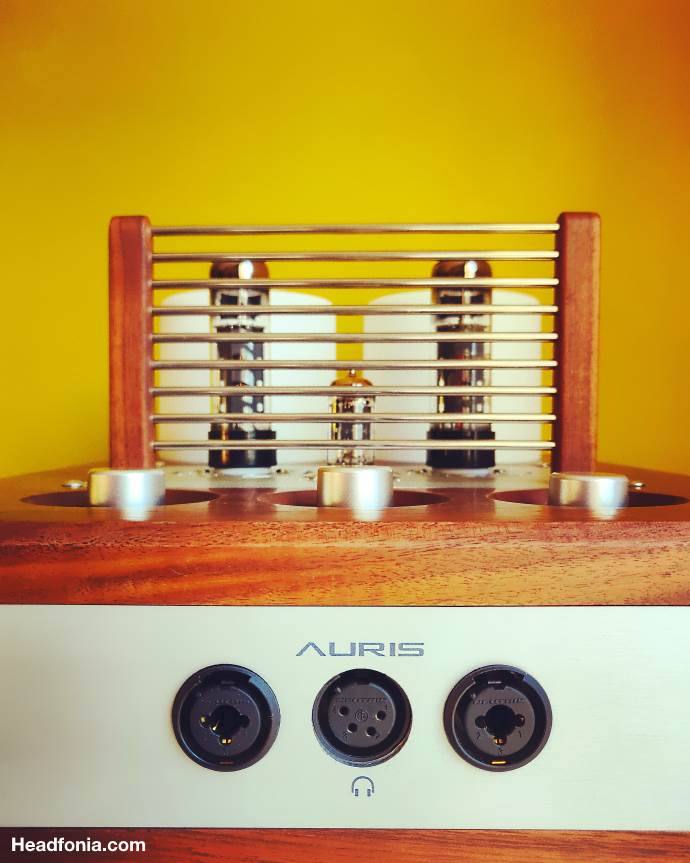
On the back of the amp we from left to right find a double RCA input and a set of XLR inputs. Do note the Nirvana is not a balanced amplifier. Next to the XLR input you have the PSU-connector and that’s all, there are no outputs.
Here’s a nice youtube clip where Mr. Paya talks about the Nirvana for his store: https://www.youtube.com/watch?v=Kyz2WjhxpwQ . The most interesting part about he Nirvana is the first part up to 6’12’’.
Specs
| Tubes | 1 x ECC82, 2 x EL34 |
| Amplifier Configuration | Single Ended |
| Input Sensitivity | 1.4V |
| Power output: max | 6.5W |
| Output Impedance | 32 Ohm/80 Ohm/150 Ohm/300 Ohm & 600 Ohm |
| Analog Inputs | 3 x Line |
| Dimensions (WxLxH) mm | 300x390x190 |
| Weight (kg) | 11.8 |
| Power supply Dimensions (WxLxH) mm | 300x390x95 |
| Power supply Weight (kg) | 7.2 |
| Remote control | No |
Sound
The DACs used with the Headonia in this review is the Violectric V850. The tube configuration used for the review is the Philips ECC82 in combination with the RFT EL34. The transport is my laptop running ROON.
After a good burn in of the new NOS tube sets, the Nirvana made it clear from the beginning it is another high level amplifier. It is the perfect blend of the Auris Audio HA2-SE and the TOTL Headonia in the way that it takes the best of both. The HA2-SE is a really warm, smooth and incredibly musical sounding amplifier while the Headonia has a reference tuning with superb clarity and great dynamics but the Headonia is also rather neutral sounding (in a good way) and it doesn’t have any real warmth. The Nirvana takes the musicality of the HA2-SE and some of its warmth and smoothness and it combines it with the precision, dynamics and top level transparency of the Headonia. The end result is a musical high end amp with heaps of power. It’s almost impossible not to love Nirvana, and I personally haven’t found anyone who didn’t like it so far.
Warmth-wise, if my Lafigaro 339 is 80°C, the Audiovalve Solaris is around 40°C and the Headonia like 15°C. The Nirvana goes in between the Solaris and Headonia, and I’d put it around 35. Now the end sound and also the warmth of the Nirvana will depend on the tubes you’re using, but for me with this combo of tubes, it hits the sweet spot.
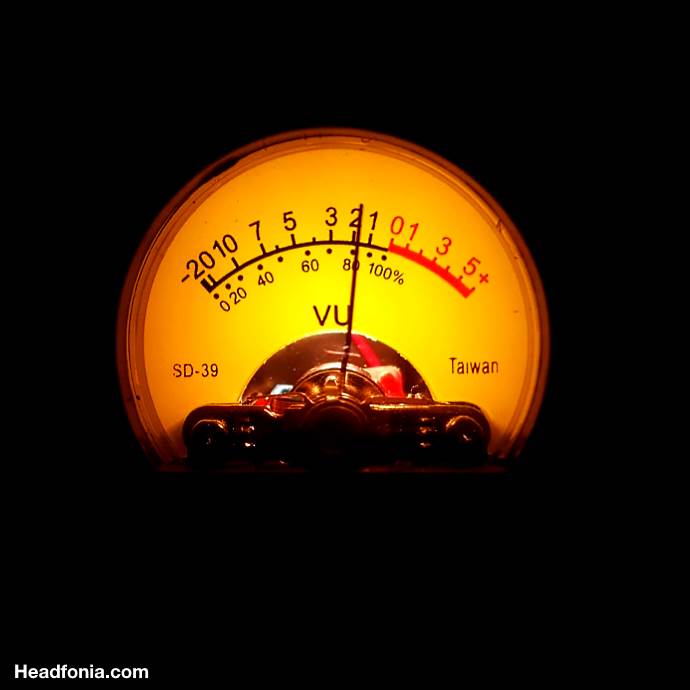
Nirvana is dead silent with the stock tubes and with my actual set, though depending on your tubes there might be some noise. That’s not the amps fault however as the circuitry, components and transfos are dead silent. You get a perfectly black background with a wide and deep sound stage. The layering is really good and the separation is really clear. Nirvana presents you the sound with just the right amount of clarity and air to make it a precise and wise sounding amp, but it never exaggerates. So in the end you get a very natural, pleasing and smooth sound, and that with all of the headphones you can possibly think of.
This in fact is one of its strong points: this amplifier will power everything with ease, and then we’re talking about the hardest o drive headphones such as the Hifiman HE-6, the HE-500 and the Susvara. That last one if fact is the one Auris Audio in general uses to demo the amplifier at the Head-Fi Canjam shows all over the world. Check the show reports if you can, I doubt you’ll find a single bad word of this setup. At the same time this also is a down side, as said the VU-meters show you the real output power of the amp/headphone in use and as it’s so extremely powerful (loud) you will hardly see these nice meters move if you hook up an easier to drive headphone. It’s a bit of a shame to see the nice VU-meters stay stuck in the left corner, and maybe Auris should have made the amp a bit less powerful as it is now with its 6.5W/channel. With my collection of headphones (unless you’re almost deaf or want to get deaf soon) you’ll only see the meters move somewhat with the old HE-500.
The part on sound continues on the third page of this article, right HERE.





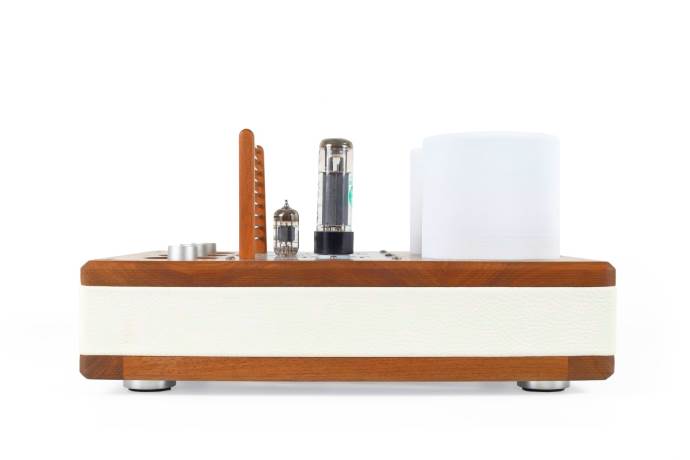
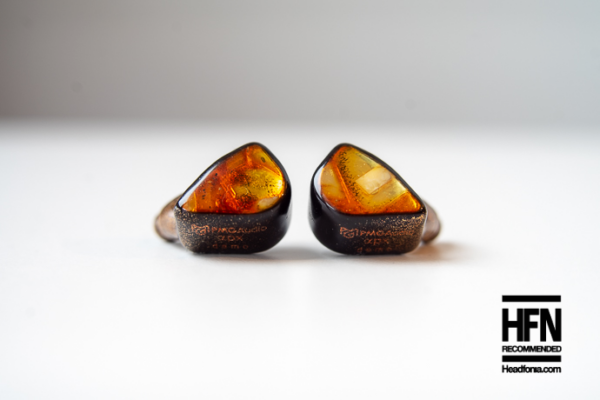
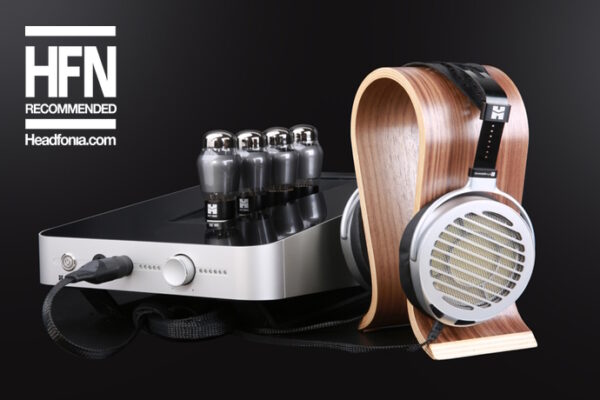
lantian
Just a quick not, as far as friend from Russia are aware, there are absolutely no new tubes being made in Russian Federation today.
All the factories have been closed for years and have not been reopened for some limited run of tubes. All those tubes are made in China, then rebranded. Pretty sure all modern tubes are made in China. This discussion has come up over the years especially in Russian forums where they can laugh at the fools who believe their tubes where made in Russia.
Lieven
How about Xpo-pul / Saratov, Russia? They’re supposed to make Electro-Harmonix, Tung-Sol and new Mullard brands in this factory.
Jason Ho
What’s the headphone cable used on the first picture ?
Lieven
You probably mean the 1st picture of the Third page.
Right: PlusSound X16
Left: Forza Audio Works Noire Hybrid HPC
Steve M.
On the first page under tube galore, you say the ECC 82 is the equivalent of the 12AU7 and CV4004 ….. It’s actually the CV4003 not CV4004. I recently bought this amp and I agree it’s the sweet spot in the Auris line up. Nice review.
Nilesh Desai
Compare to Manely Absolute how it is?
Lieven
Impossible to say as we don’t have it
Rob Rosen
Please advise if you tested the JP or International tuning of the MEST and thanks!
Lieven
International as far as I know
Victor Hoi Yu
How would this compare with the new HA2-SF? In terms of warmth and clarity.
Mike I
Hi Lieven,
Still in love with this amp?
Best regards,
M
Lieven
It’s still a good amp for sure, but I prefer using the Headonia as it it’s technical level is quite a bit better